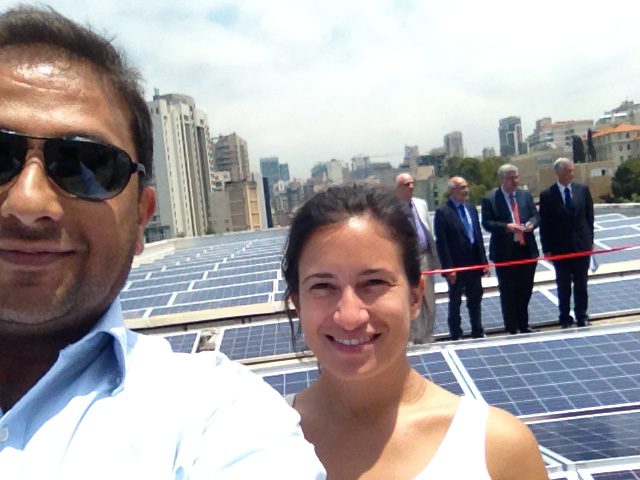Romanos has already pitched the business model to a number of communities — and says local leaders are interested. But SunRay Energy’s progress is held up until the company can find the capital to purchase its first solar systems. The SunRay Energy team plans to spend the next six months looking for grants and investment, and wants to have a pilot project and prototype ready by early 2018.
Some of those investments may come from the networks Romanos is forming around the region and the world. Earlier in 2017, she was selected as a finalist for the WeMENA Competition, an initiative for female entrepreneurs in the Arab world. Romanos’ pitch earned her a spot in the top 10, and she will be traveling to Washington D.C. at the end of July to take leadership courses and meet with investment heavyweights such as the World Bank.
Solar solutions to the Syrian crisis:
SunRay Energy is also collaborating with Assad at Kapstone Co. Together, the companies created an initiative to secure a power supply that caters for the increasing number of refugees, particularly in Akkar, the Lebanese district bordering Syria. “The utilities cost in this area is severely increasing in energy, waste, water, and food, and municipalities cannot cover this sudden increase,” says Assad. “The SunRay model is one of the solutions to that unexpected high demand. The solar microgrids can cover the gap and are sustainable at the same time.”
SunRay Energy and Kapstone Co also have another initiative to cover the Beirut and Mount Lebanon areas. “Our system is seamless and easy to build,” says Romanos. “We have the potential to expand easily beyond Lebanon, especially into Syria when they are rebuilding. It can take years to build or fix power plants, but our system can be in a community and light it up within a couple of months.”
When SunRay succeeds in its mission, Romanos says it has the potential to impact a huge number of people in rural Lebanon — and beyond.
Website: www.sunrayenergy.me/
Photos: Courtesy of SunRay Energy



